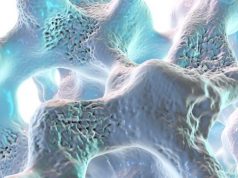Outcomes and treatment worse for patients hospitalized during weeks with a high hospital COVID-19 burden
By Elana Gotkine HealthDay Reporter
WEDNESDAY, Aug. 30, 2023 (HealthDay News) — For patients with non-ST segment elevation myocardial infarction (NSTEMI), hospital COVID-19 burden was associated with worse outcomes and treatments but did not affect race and ethnicity-associated inequities, according to a study published online Aug. 25 in JAMA Network Open.
Laurent G. Glance, M.D., from the University of Rochester School of Medicine in New York, and colleagues conducted a cross-sectional study to examine whether the COVID-19 pandemic was associated with increased disparities in treatment and outcomes among Medicare patients hospitalized with acute MI (AMI) between January 2016 and November 2020.
Data were included for 1,319,273 admissions for AMI (9.3, 8.9, and 81.8 percent Black, Hispanic, and White, respectively). The researchers found that for patients hospitalized during weeks with a high COVID-19 burden (>30 percent) in the hospital, the adjusted odds of mortality and nonhome discharges increased significantly for patients with NSTEMI overall (adjusted odds ratios [OR], 1.51 and 1.32, respectively), and odds of revascularization decreased (adjusted OR, 0.73) compared with patients hospitalized before the pandemic. For each 10 percent increase in COVID-19 hospital burden, Black versus White individuals with NSTEMI had a clinically insignificant increase in the odds of mortality (adjusted OR, 1.07) but no increases in readmissions or nonhome discharges or decrease in revascularizations. No differential increases were seen in adverse outcomes among Hispanic versus White patients with NSTEMI based on hospital COVID-19 burden.
“Policy and clinical interventions are needed to ensure that hospitals can continue to provide high-quality, evidence-based care for all patients, even in times of strain or stress,” the authors write.
Copyright © 2023 HealthDay. All rights reserved.








